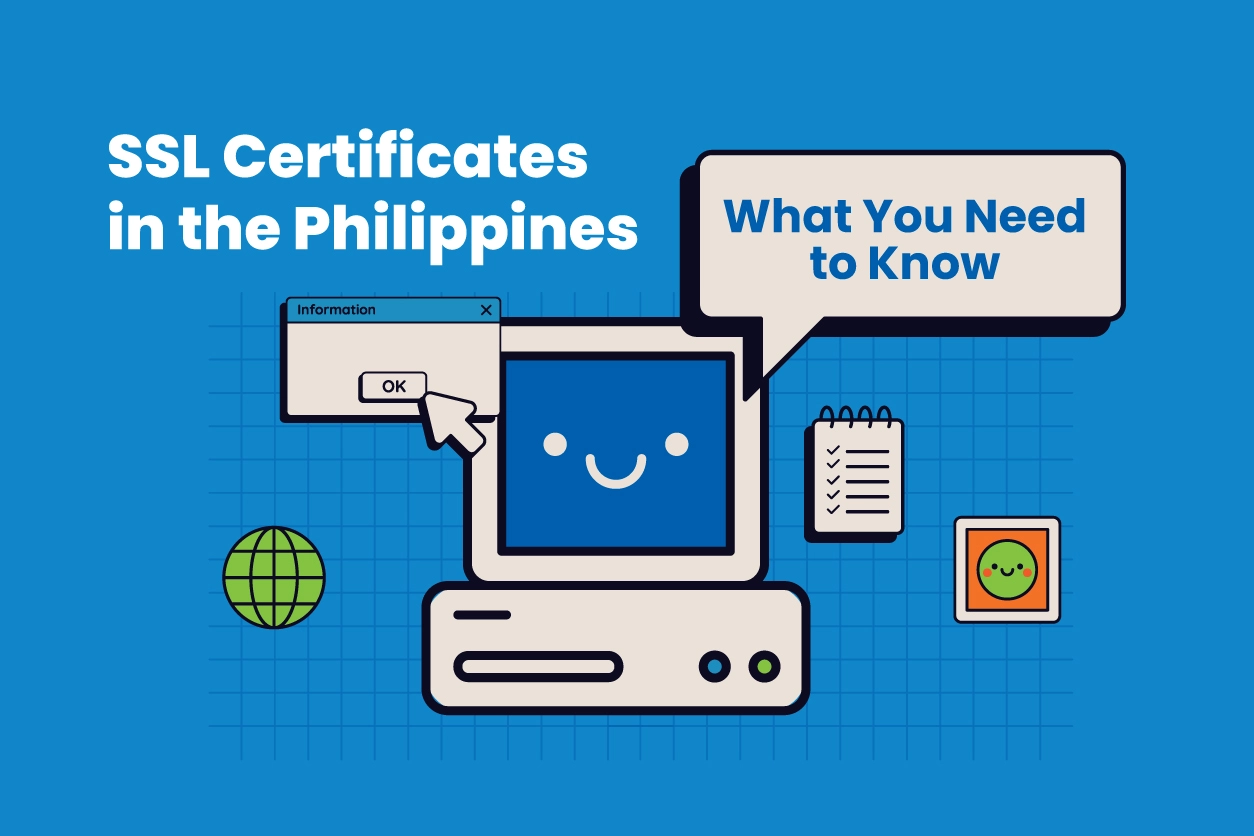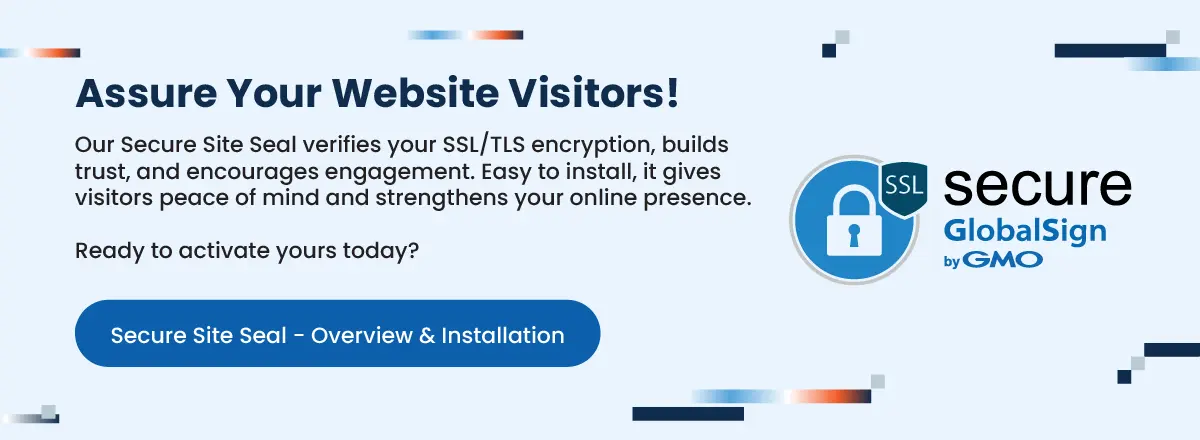Fundamentals of SSL in Philippines
In today's digital age, online security is paramount, especially in a rapidly growing economy like the Philippines. SSL certificates play a crucial role in safeguarding your website and protecting sensitive data. By encrypting data transmitted between your website and visitors, SSL certificates help build trust, enhance user experience, and improve your website's reputation.
What is an SSL certificate in the Philippines?
SSL, or Secure Sockets Layer, is a crucial protocol that ensures secure online communication. It encrypts data transmitted between your device and a website, safeguarding sensitive information like login credentials and credit card details from prying eyes. SSL certificates, issued by trusted Certificate Authorities (CAs) like GlobalSign, act as digital passports, verifying a website's identity and enabling encrypted connections. This is particularly important in the Philippines, where online shopping is prevalent.
Philippines’ Most Trusted Certificate Authority
Is SSL certificate free?
When selecting an SSL certificate for your Philippine-based website, you must consider a lot of factors. SSL certificates are an essential investment for businesses and individuals in the Philippines. These come in both free and paid versions, depending on the certificate type and level of security required. SSL certificate prices in the Philippines vary depending on the validation type and the Certificate Authority (CA):
-
Domain Validated (DV) SSL - The most basic type of SSL certificate which is ideal for most websites that do not require its visitors to send any personal information. Examples of these are blog websites.
-
Organization Validated (OV) SSL - OV SSL certificates require a vetting process to verify the organization's identity. This information is displayed to visitors, unlike DV SSL. Many organizations prefer OV SSL for the added credibility it provides, especially those seeking higher levels of trust and security.
-
Extended Validated (EV) SSL - This is the highest level of SSL, offering the strongest security and trust. It’s ideal for websites that handle sensitive data, such as login credentials and payments. EV SSL is recommended for most organizations, including e-commerce, large corporations, and banks.
It is worth noting that there are no free OV and EV SSL as these are the more advanced types of SSL that involve a subsequent vetting process. While some DV certificates do come for free, they may not be enough for certain websites.
HTTPS meaning
HTTP vs HTTPS difference

HTTPS (Hypertext Transfer Protocol Secure) is a secure version of HTTP, which is the protocol used for transmitting data between your web browser (like Chrome, Firefox, or Safari) and a website's server. The key difference is that HTTPS encrypts the data exchanged, making it secure against potential eavesdroppers. In contrast, HTTP sends data in plain text, making it vulnerable to interception and unauthorized access.
SSL certificates are essential for website security and user trust. Prices vary based on the level of security needed. HTTPS, enabled by SSL, is now a standard requirement. They are crucial for encrypting data transmitted between your website and visitors, protecting sensitive information and building trust with your audience.
SSL validity
An SSL certificate in the Philippines SHOULD NOT have a Validity Period greater than 397 days and MUST NOT have a Validity Period greater than 398 days, as set out in the CA/B Forum's Baseline Requirements. However, recent discussions are being planned to reduce the validity to only 90 days, according to a Google announcement last March 2023. The effective date is still pending. However, once implemented, websites are required to ensure their websites are renewed every 90 days.
Automation meaning

Luckily, despite the 90-day validity announcement, website owners can opt for an automated SSL certificate management for certificate renewals to avoid websites from expiring and website downtimes. These automated certificate management platforms will enable seamless automation for all SSL certificates within a website. Installations and renewals will no longer be a problem at all, and the reduction of certificate validity will not even be an issue and will not require additional manpower to implement.
Best SSL practices in the Philippines
Ensuring a secure online presence is crucial for businesses and individuals in the Philippines. SSL certificates are a fundamental component of website security, providing encryption and authentication. Following best practices for SSL certificates is crucial for Filipino businesses to ensure a secure online presence. This not only protects sensitive customer data but also builds trust and confidence.
The Importance of SSL Certificates for Filipino Enterprises
Cyberattacks in the Philippines underscore the critical need for robust cybersecurity measures, like the recent data breach in Manila which exposed sensitive government information, including personal details, fingerprints and tax records of millions of Filipinos. Incidents like this are a stark reminder of the potential consequences of inadequate security. While no SSL certificate can guarantee 100% protection against all hacking attempts, it is a crucial component of a comprehensive security strategy. SSL encryption helps to protect sensitive data transmitted between a website and its visitors, reducing the risk of unauthorized access and data breaches. By utilizing SSL certificates, businesses and organizations in the Philippines can significantly enhance their cybersecurity posture and protect their customers' privacy.
Considering these, the need for robust cybersecurity measures globally becomes increasingly apparent. Opt for a globally recognized CA that adheres to industry standards. The Philippine government's official list of recognized Cybersecurity Assessment Providers, which includes reputable CAs like GlobalSign, can be a valuable resource when making your selection. GlobalSign, a leading Certificate Authority with Philippine language support, offers SSL certificates to safeguard websites and protect sensitive data. As the digital landscape evolves, SSL is no longer a luxury but a necessity for businesses and organizations operating in the Philippines.
SSL certificate management
Effective SSL certificate management is essential for maintaining a secure and efficient online presence in the Philippines. To ensure optimal security, consider the following best practices:
-
Regular Renewal Tracking: Keep a close eye on certificate expiration dates and renew well in advance to avoid disruptions.
-
Comprehensive Inventory: Maintain a detailed record of all SSL certificates, including their locations, expiration dates, and associated domains.
-
Trusted Certificate Authorities: Choose SSL certificates issued by reputable Certificate Authorities (CAs) to ensure the highest level of security and trust.
-
Proactive Monitoring: Implement tools to monitor certificate status, identify vulnerabilities, and receive timely alerts about potential issues. Here’s a free tool for checking your website’s strengths and weaknesses.
-
Secure Private Key Management: Protect your private key, the secret component of your SSL certificate. Store it securely, avoid sharing it, and regularly update it to mitigate risks.
-
Centralized Management: Consider using a reliable certificate management platform to streamline processes, automate tasks, and reduce the burden on your IT team.
By following these guidelines, businesses in the Philippines can strengthen their cybersecurity posture and protect sensitive data from unauthorized access.
Encryption standards
Encryption standards are essential for online security and protecting sensitive data:
- Advanced Encryption Standard (AES): Widely used for symmetric encryption and offers varying key lengths (128, 192, or 256 bits).
- RSA (Rivest-Shamir-Adleman): An asymmetric encryption method that utilizes a pair of keys (public and private) for encryption and decryption.
- ECC (Elliptic Curve Cryptography): Gaining popularity due to strong security with smaller key sizes.
Keeping up to date with robust encryption standards is crucial for individuals, businesses, and organizations to prevent data breaches and build trust in the digital landscape.
SSL Certificate Use Cases in Philippines
Website transactions
Enterprise use cases
Here are five SSL use cases for website transactions in enterprises:
- User account protection
- Securing customer information and e-commerce payments
- Online banking and financial services
- Secure file transfers
- Client portals and intranets
Personal use cases
SSL certificates are not only essential for enterprises but also beneficial for personal use. Here are some personal use cases for SSL certificates:
- Personal Websites or Blogs
- Online Portfolios
- Secure File Sharing
- Online Shopping
- Social Media and Personal Accounts
Implementing SSL certificates in personal use cases helps establish trust, protect data, and ensure a safer online experience for you and those you interact with on the internet.
GlobalSign Philippines
We at GlobalSign aim to help organizations and individuals like you protect your websites through our SSL certificates by providing top-tier encryption and authentication. With GlobalSign SSL certificates, sensitive data exchanged between the website and visitors remains secure, safeguarding against potential data breaches and unauthorized access. These SSL certificates in the Philippines are easy to manage and widely compatible, ensuring a smooth user experience.
Our reputation as a trusted Certificate Authority instills confidence in website visitors, helping organizations build trust and credibility while maintaining a safe online environment.
Interested? Email us at sales-ph@globalsign.com today!
When it comes to SSL certificate providers in the Philippines, GlobalSign stands out as the best choice. Aside from being the only Certificate and Identity Authority with a strong English and Filipino-speaking support team based in the Philippines, our SSL certificates come with top-notch encryption, ensuring the highest level of security for online transactions and data protection. Many organizations in the Philippines continuously experience seamless integration and excellent customer support.
With a strong commitment to security, a proven track record, and a vast network of customers worldwide, GlobalSign is undoubtedly the best SSL certificate provider in the Philippines. Choosing GlobalSign for your SSL certificate needs will not only boost your website's trustworthiness but also protect your valuable data and foster a secure online environment for your customers.
How GlobaLSign SSL certificates can make an impact
We provide unparalleled security, local support, easy integration, and a trusted reputation. Our SSL certificates offer industry-leading encryption, our Philippine-based team provides dedicated support in both English and Tagalog, our certificates are designed for easy integration, and GlobalSign is recognized worldwide as a leading Certificate Authority.








